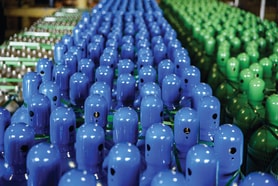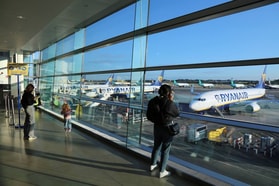Hangzhou Hangyang has overseas vision
Hangzhou Hangyang found its origins in 1950, when three arms and weapons companies amalgamated to create the Hangzhou Steel plant.
Since then the firm celebrated its 60th anniversary by being listed on the Shenzhen Stock Exchange on 10th June 2010. Very recently, the company has articulated plans for further expansion.
Hangzhou Hangyang is now composed of more than 30 companies and produces an average of 40-50 ASU units on an annual basis. The majority of these offer a capacity in excess of 20,000 m³/h. Consequently the company’s overall production output exceeds 1 million m³/h.
Despite this, General Manager, Mao Shao Rong, has set a goal for the firm to become one of the leading ASU manufacturers in the world. Mao stated, “The company is the largest ASU manufacturer in China and Hangyang has taken the lead in the development of domestic ASU technology.”
According to Mao, the company grew very rapidly from 2000 onwards. He has stated that in order to continue to grow, the firm must reach past its existing remit as a lead domestic supplier, to breaching the industrial gas market. Mao described the company’s forthcoming strategy, “Our advantage is that we have many ASU users. At first we will expand our industrial gas business in China. We will invest the majority of the total RMB1.230bn which we procured from the market for this purpose.”
Hangzhou Hangyang believes it is specifically centred towards this type of growth. Mao explained, “In the steel industry, in many cases for large producers, their subsidiaries have ASUs which provide gas to meet the requirement for industrial gas. We will promote M&A activities among these subsidiaries.”
“In the near future we will not only promote M&A activities, but also invest in new gas projects. We are aiming at the sales ratio for our ASU and gas businesses to become equal, whilst also aiming at more growth in the gas business in the future.”
Meanwhile, the company’s overseas strategy differs somewhat. Mao believes that Hangzhou Hangyang lacks the international partners to expand business into the overseas market. Mao concluded by resolving to achieve overseas success through, initially, expansion in China. He said, “It is true that I feel a heavy responsibility. It is not however, just a question of the ASU business. If Hangyang could grow as a gas producer, this would lead to further expansion of Chinese industry too.”
... to continue reading you must be subscribed









